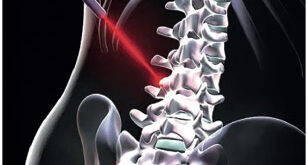By Lee R. Cohen, D.D.S., M.S., M.S. –
 A common question we are asked is, “my gums are bleeding, is that normal?” The simplest answer is to consider if you saw any other part of your body bleeding, would you consider that normal. If one were to look down at their shirt in the middle of the day and see blood stains, would that be normal. Obviously from my comments you can tell that bleeding gums should not be considered normal, but it is a common occurrence.
A common question we are asked is, “my gums are bleeding, is that normal?” The simplest answer is to consider if you saw any other part of your body bleeding, would you consider that normal. If one were to look down at their shirt in the middle of the day and see blood stains, would that be normal. Obviously from my comments you can tell that bleeding gums should not be considered normal, but it is a common occurrence.
Bleeding or swollen gums (Gingivitis) can be caused by a wide variety of factors, but are most often due to your body’s reaction to plaque and tartar that has accumulated near the gum line. This plaque (which is composed of bacteria) is seen as an infection by the body. The body sends extra blood into the area to help rid itself of the infection. We see this as swollen gums that bleed very easily. This is similar to a cut on your hand that gets red and puffy, as the body tries to ward itself of infection and begin the healing process. A buildup of plaque can be caused by things such as poor brushing technique and infrequent professional hygiene appointments.
There are things that can make cleaning your teeth more challenging, such as having a significant amount of dental work in your mouth. More specifically, dental crowns and filling materials resting near the gums can act as ledges at a microscopic level which are places plaque and tartar can accumulate. If these areas are not cleaned properly, gum inflammation can occur fairly easily. Over time if left untreated, gum inflammation can lead to a more advanced problem called Periodontitis. At this point, bone loss begins to occur which can lead to tooth loss.
Treatment:
The term periodontal disease comprises both Gingivitis and Periodontitis. It is important to understand that Gingivitis is reversible. Bleeding and inflamed gums can be treated and in many circumstances the inflammation and bleeding will resolve and the area return to normal. Once bone loss has begun (Periodontitis), the disease is no longer reversible and more advanced treatment may be needed.
Proper oral hygiene and regular periodontal maintenance (“cleaning”) appointments can help keep periodontal disease at bay. Should Gingivitis begin to occur, the most common non-surgical therapy involves Root Planing and Scaling (often referred to by patients as a “deep cleaning”). This treatment involves anesthetizing the areas involved and a deeper removal of the plaque and tartar above and below the gum line. In some situations, antibiotics may be prescribed orally or placed in certain areas under the gum itself.
As the disease progresses and periodontitis has begun, more advanced therapy is typically required. Traditionally, periodontal surgery has been used to help slow the disease progression. A newer technique called LANAP (Laser Assisted New Attachment Procedure) is available which utilizes a laser to treat the disease. In this procedure, there is no use of a scalpel or sutures, so minimal to no post-treatment discomfort occurs. The goal of both of these therapies is to help slow bone loss and keep your teeth longer.
It is important to realize that in many cases, this disease is painless and patients are often unaware of what is occurring. It is equally important to realize that more than half of our population has some form of periodontal disease and that treatment can be very successful if it is properly diagnosed. The only true way to identify the presence of periodontal disease is a periodontal evaluation which includes a complete gum evaluation (gum pocket measurements) along with an evaluation of a recent, complete set of dental x-rays.
Lee R. Cohen, D.D.S., M.S., M.S., is a Dual Board Certified Periodontal and Dental Implant Surgeon. He is a graduate of Emory University and New York University College of Dentistry.
Dr. Cohen completed his surgical training at the University of Florida / Shands Hospital in Gainesville, Florida. He served as Chief Resident and currently holds a staff appointment as a Clinical Associate Professor in the Department of Periodontics and Dental Implantology. Dr. Cohen lectures, teaches and performs clinical research on topics related to his surgical specialty.
The focus of his interests are conservative approaches to treating gum, bone and tooth loss. He utilizes advanced techniques including the use of the Periolase Dental Laser (LANAP procedure) to help save teeth and treat periodontal disease without the use of traditional surgical procedures. Additionally, he uses in-office, state of the art 3D CT imaging to develop the least invasive dental implant and bone regeneration treatment options. Dr. Cohen and his facility are state certified to perform both IV and Oral Sedation procedures.
Dr. Cohen currently serves on the Board of Trustees for the American Academy of Periodontology and the Florida Dental Association. He is past president of the Florida Association of Periodontists and the Atlantic Coast District Dental Association. In addition, Dr. Cohen has been awarded Fellowship in the American College of Dentists, International College of Dentists and the Pierre Fauchard Academy.
Lee R. Cohen, D.D.S., M.S., M.S.
4520 Donald Ross Road, Suite 110
Palm Beach Gardens, FL 33418
Phone: 561-691-0020
www.pbcperio.com
Check Also
Unlocking Inner Peace: The Revolutionary EXOMind Therapy at ThinWorks Offers a Drug-Free Path to Mental Wellness
In the serene setting of Palm Beach Gardens, a quiet revolution is unfolding in the …
 South Florida Health and Wellness Magazine Health and Wellness Articles
South Florida Health and Wellness Magazine Health and Wellness Articles




